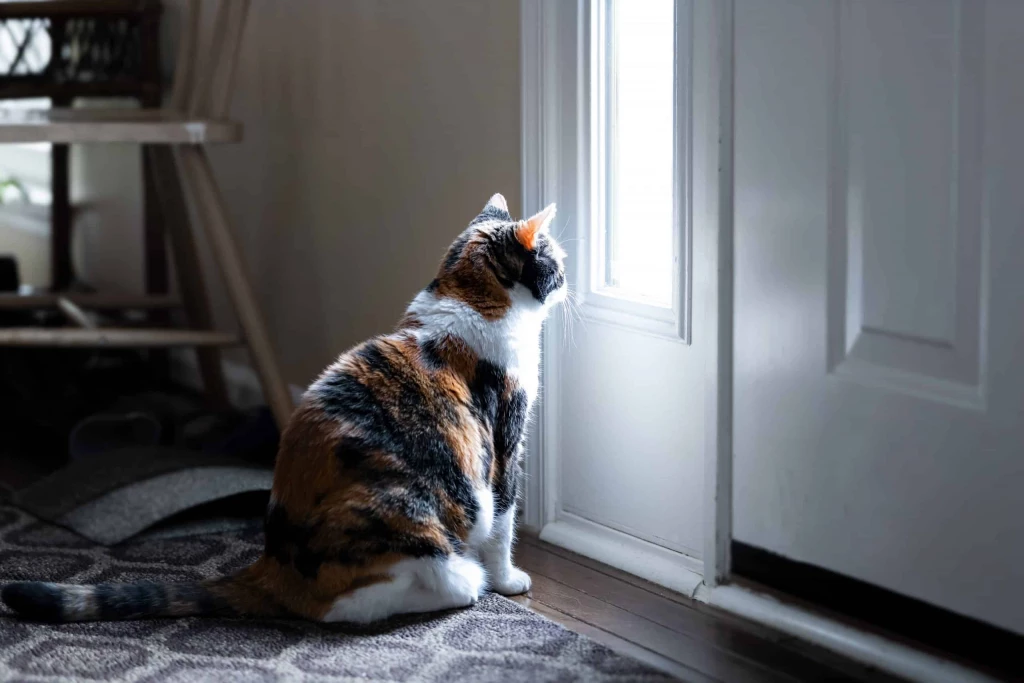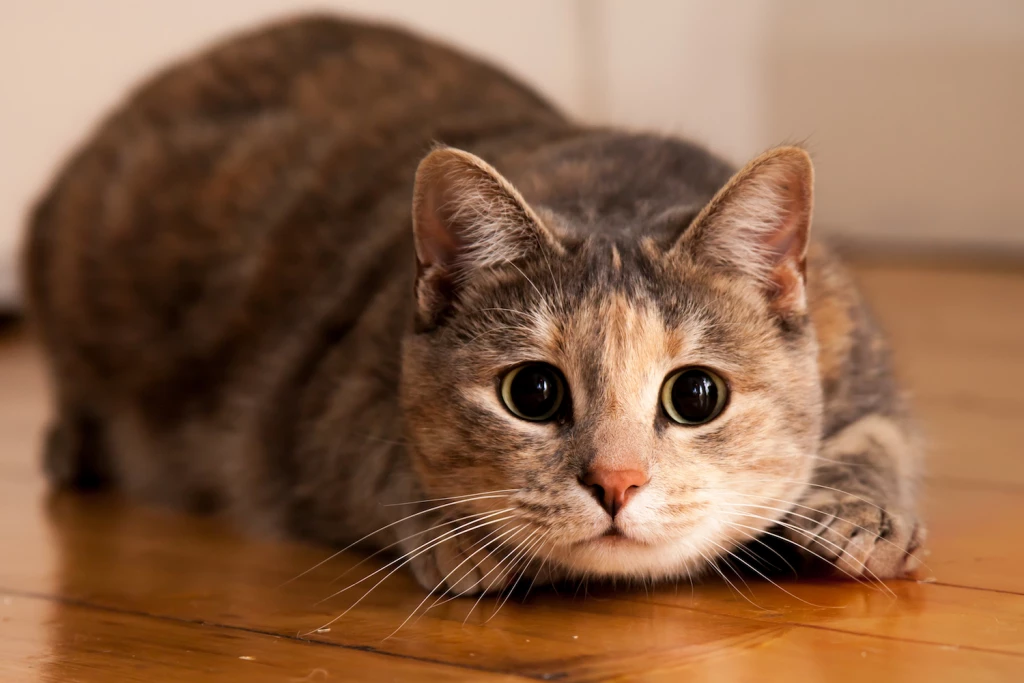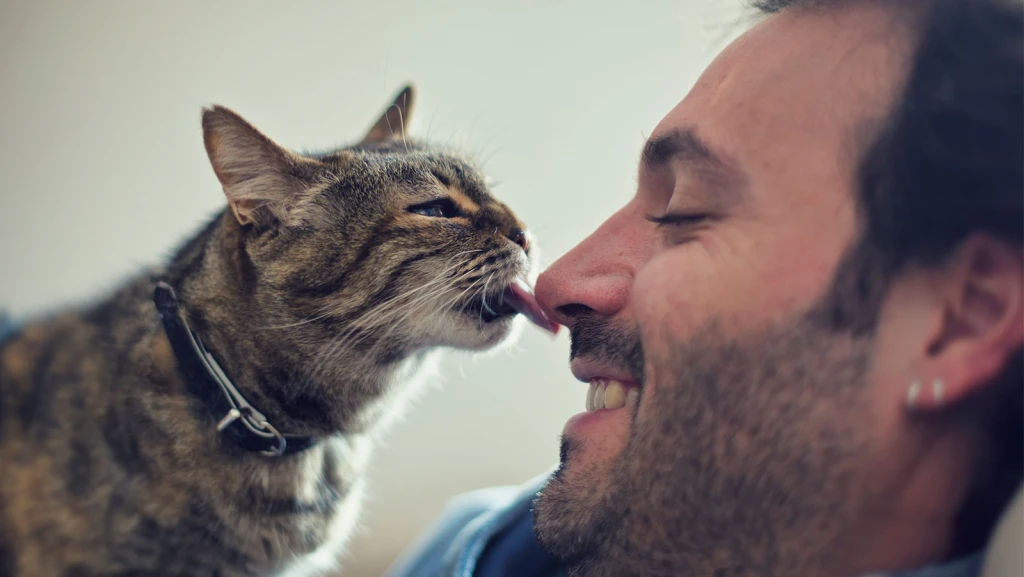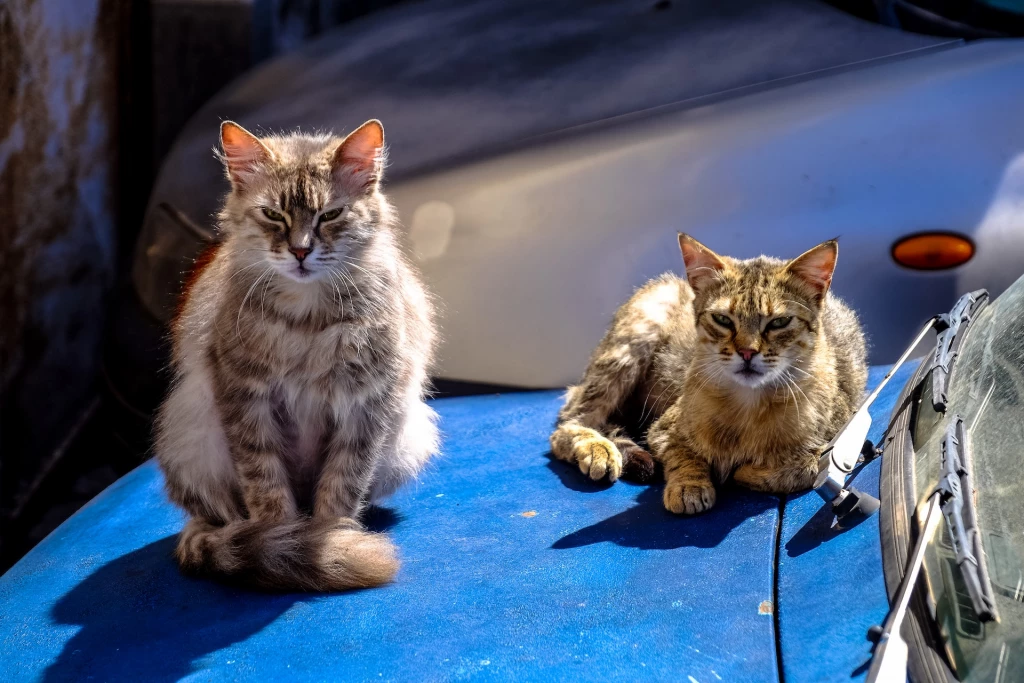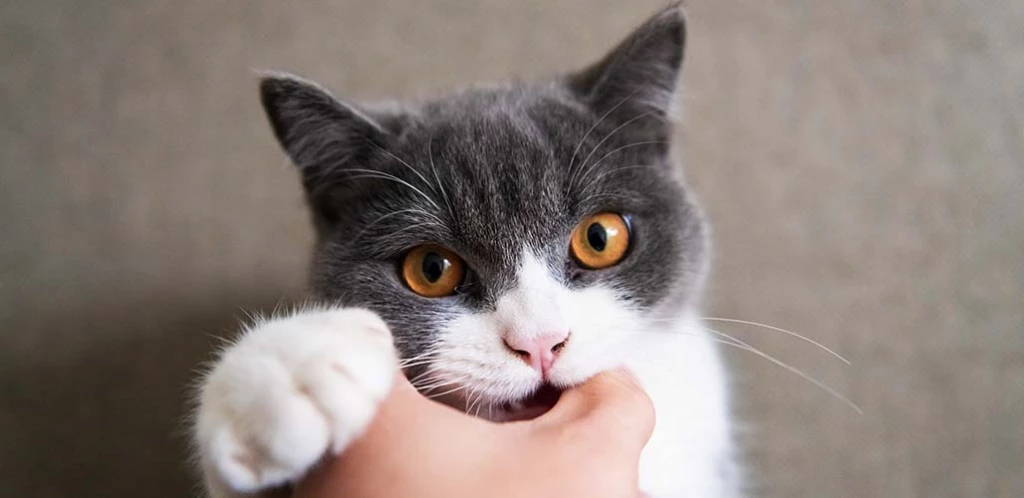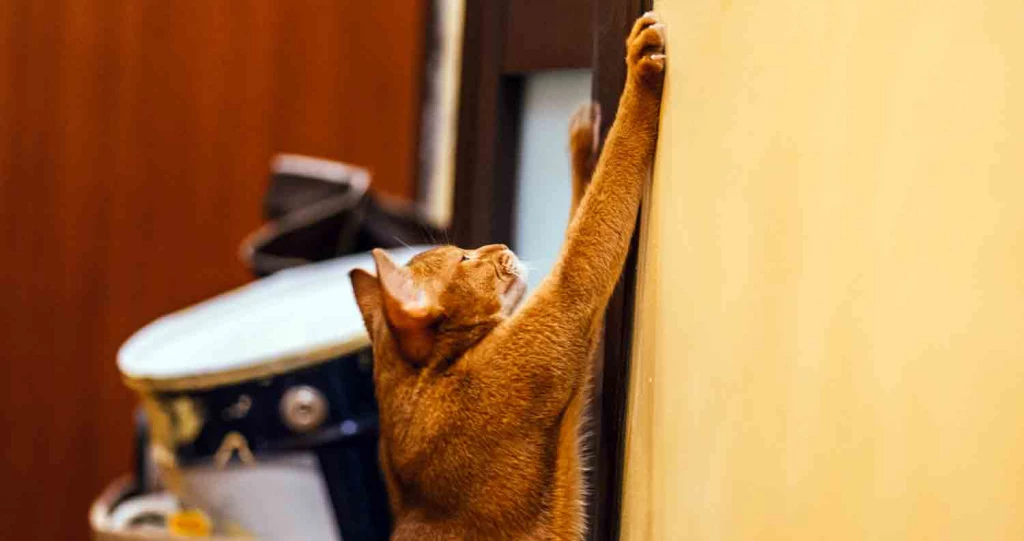Have you ever wondered why your cat seems to have a vendetta against closed doors? You know the drill: you close the door to your bedroom, bathroom, or office, and your cat immediately starts meowing, scratching, and pawing at it, as if their life depends on it. You open the door, expecting them to rush in, but they just look at you with a smug expression and walk away. What’s going on here?
If you’re a cat owner, you’ve probably experienced this scenario more than once. Cats are notorious for hating closed doors and doing everything in their power to open them. But why do they do that? Is it just a quirky habit or is there a deeper reason behind it?
In this blog post, we’ll explore the mystery of why cats hate closed doors and what you can do to make them more comfortable with them. We’ll look at the different factors that influence your cat’s behavior, such as their territorial instincts, their curiosity, and their social needs. We’ll also give you some practical tips and advice on how to deal with your cat’s door-hating tendencies and make your home more cat-friendly.
By the end of this blog post, you’ll have a better understanding of why your cat hates closed doors and how to handle it. You’ll also learn how to strengthen your bond with your furry friend and make them happier and healthier. So let’s get started!
Why Do Cats Hate Closed Doors?
The main question of this blog post is why do cats hate closed doors. To answer this question, we need to look at the different reasons that motivate your cat’s behavior and how they relate to their natural instincts and needs. Here are some of the most common reasons why cats hate closed doors and what they mean:
- They are territorial animals: Cats are very territorial by nature. They like to mark their territory and patrol it regularly to make sure everything is in order. They also like to have access to all parts of their territory and feel secure in it. When you close a door, you effectively cut off a part of your cat’s territory and prevent them from accessing it. This can make your cat feel frustrated, anxious, or threatened. They may think that you are trying to take over their territory or that there is something dangerous or interesting on the other side of the door. That’s why they will try to open the door, scratch it, or attack it. They want to reclaim their territory and see what’s going on.
- They are curious creatures: Cats are also very curious by nature. They like to explore new things and investigate anything that catches their attention. They have a strong drive to satisfy their curiosity and learn more about their environment. When you close a door, you create a mystery for your cat. They don’t know what’s behind the door and they want to find out. They may hear noises, smell odors, or see movements that make them curious. They may also wonder where you or other cats are and what you are doing. That’s why they will try to peek through the door, open it, or meow at it. They want to solve the mystery and join the action.
- They are social animals: Cats are also very social by nature. They form bonds with their owners and other cats and like to interact with them. They also like to be part of the family and participate in the activities that happen in the house. When you close a door, you isolate your cat from their social group and exclude them from the fun. They may feel lonely, bored, or neglected. They may also worry about your well-being or miss your company. That’s why they will meow at the door, paw at it, or rub against it. They want to communicate with you, get your attention, or show you their affection.
- They are attention-seeking animals: Cats are also very attention-seeking by nature. They like to get your attention and affection and make you aware of their presence. They also like to get what they want and manipulate you to do their bidding. When you close a door, you deprive your cat of your attention and affection and deny them what they want. This can make your cat feel annoyed, jealous, or spoiled. They may think that you are ignoring them or favoring someone or something else over them. That’s why they will meow at the door, scratch it, or rub against it. They want to get your attention, make you open the door, or show you their displeasure.
- They are habit-driven animals: Cats are also very habit-driven by nature. They like to have a routine and stick to it. They also like to have consistency and predictability in their environment. They don’t like changes or surprises that disrupt their normal flow of life. When you close a door, you create a change or a surprise for your cat that breaks their routine and alters their environment. This can make your cat feel confused, stressed, or anxious. They may not understand why you closed the door or what it means for them. That’s why they will meow at the door, paw at it, or try to open it. They want to restore their routine and environment to what they are used to.
As you can see, there are many reasons why cats hate closed doors and they all stem from their natural instincts and needs. By understanding these reasons, you can better empathize with your cat and find ways to make them more comfortable with closed doors.
How to Deal with Cats Who Hate Closed Doors?
Now that you know why your cat hates closed doors, you may wonder what you can do to make them more comfortable with them. After all, you can’t always leave the doors open and let your cat roam freely in the house. Sometimes you need to close the doors for privacy, safety, or convenience reasons. So how can you deal with your cat’s door-hating behavior and make them happier and healthier?
Here are some practical tips and advice that you can try to handle your cat’s frustration and make your home more cat-friendly:
- Provide alternative ways for your cat to access their territory: One way to reduce your cat’s stress and anxiety is to provide them with alternative ways to access their territory. For example, you can install cat flaps on some of the doors that allow your cat to go in and out as they please. You can also leave some of the doors slightly ajar or create tunnels or bridges that connect different rooms. This way, your cat can still move freely between their territory and feel more secure in it. You can also make their territory more comfortable and stimulating by providing them with toys, treats, scratching posts, hiding places, and other resources that they enjoy.
- Distract your cat from their curiosity: Another way to reduce your cat’s frustration and boredom is to distract them from their curiosity. For example, you can play with your cat before and after closing the door to keep them entertained and satisfied. You can also give them puzzles or interactive toys that challenge their intelligence and stimulate their senses. You can also provide them with a window view that allows them to see what’s happening outside and satisfy their curiosity. Alternatively, you can reduce your cat’s interest in what’s behind the door by keeping noises and smells to a minimum, covering windows or gaps, or using deterrents like spray bottles or double-sided tape that discourage them from scratching or pawing at the door.
- Reinforce your cat’s social bonds: Another way to reduce your cat’s loneliness and isolation is to reinforce their social bonds. For example, you can spend quality time with your cat before and after closing the door to show them that you love them and care for them. You can also talk to them through the door or leave them something that smells like you, such as a piece of clothing or a blanket, to reassure them that you are still there. You can also help your cat get along with other cats who share their territory by introducing them gradually, providing them with separate resources, or using pheromone diffusers or sprays that calm them down and reduce aggression.
By following these tips and advice, you can deal with your cat’s door-hating behavior and make them more comfortable with closed doors. You can also improve your relationship with your cat and make them happier and healthier.
Conclusion
In this blog post, we have explored the mystery of why cats hate closed doors and what you can do to make them more comfortable with them. We have looked at the different factors that influence your cat’s behavior, such as their territorial instincts, their curiosity, their social needs, their attention-seeking tendencies, and their habit-driven nature. We have also given you some practical tips and advice on how to deal with your cat’s door-hating behavior and make your home more cat-friendly.
By understanding why your cat hates closed doors and how to handle it, you can improve your relationship with your cat and make them happier and healthier. You can also enjoy a more peaceful and harmonious coexistence with your furry friend and avoid unnecessary conflicts and stress.
